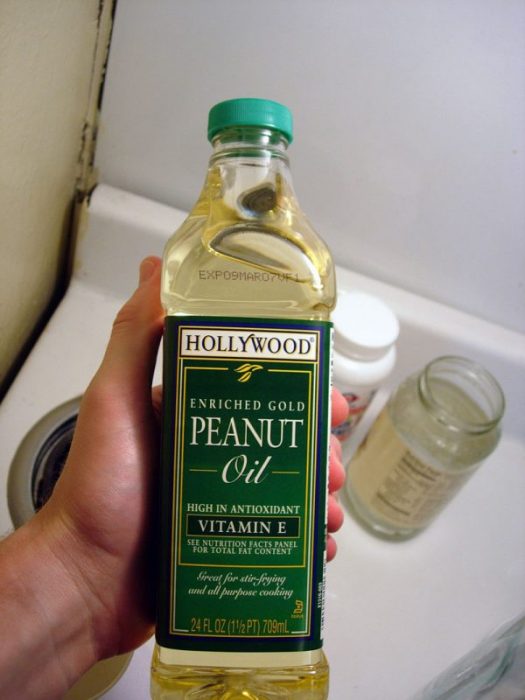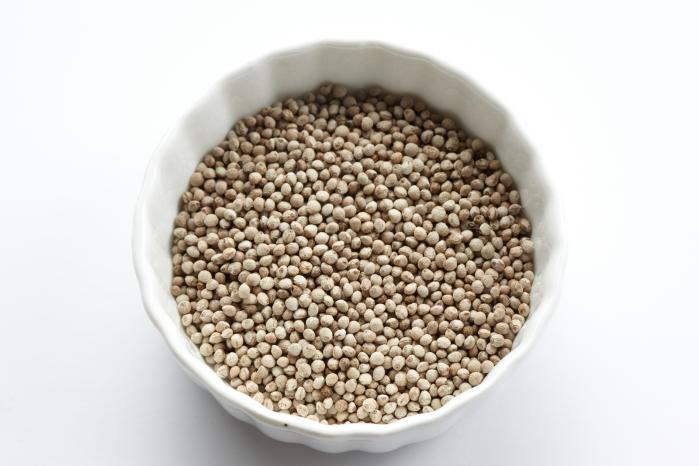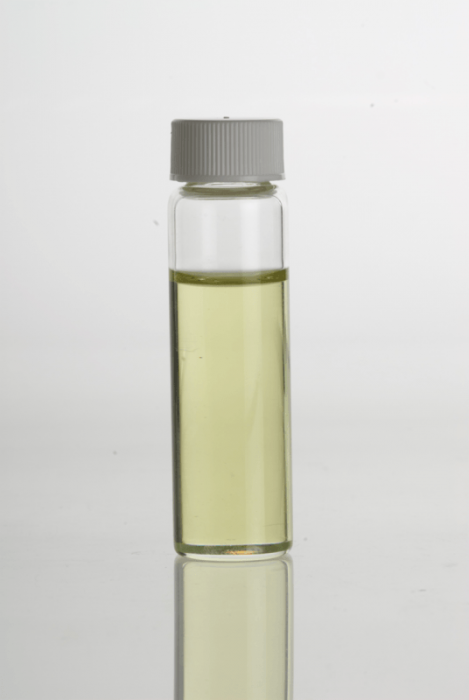
Sesame oil is made out of sesame seeds, making it a vegetable oil. Sesame oil is frequently used as a cooking oil for Southeast Asian, African, and Middle Eastern cuisines. Yet what if you don’t want to/can’t cook with sesame oil, are there any substitutes? Good alternatives for sesame oil include peanut oil, canola oil, light olive oil, and grapeseed oil.
Facts About Sesame Oil
Before taking a look at some of the alternatives for sesame seed oil, let’s examine some facts about sesame seed oil itself.
Sesame seeds have been cultivated for over 5000 years, and they are popular crops due to their drought resistance. Sesame seeds are also one of the first crops to be used for the creation of cooking oils. Sesame seeds can only be harvested when completely ripe because the seeds are protected by a tough outer capsule. This capsule will only burst open at the point of full ripeness, so the seeds can only be accessed at this time.
High temperatures facilitate the extraction of sesame oil from sesame seeds, with techniques like hot water flotation and bridge pressing being used to extract the oil. Sesame seed oil can also be extracted through a technique referred to as cold pressing, which avoids the need for high temperatures needed during other forms of extraction. The sesame oil can be further refined once extracted, though isn’t required to be. Unrefined sesame oil is said to have a better flavor than refined sesame oil.
Variants of sesame oil include cold-pressed sesame oil, East Asian sesame oil, Indian sesame oil, and Middle Eastern sesame oil. These variants frequently have different taste and coloration.
The country of Tanzania is one of the largest producers of sesame seeds and sesame seed oil in the world, dominating the global market for the product. However, countries throughout Asia and Africa are expanding into sesame seed oil markets quickly.
Sesame oil contains around 17% of the daily recommended value per 100 g of vitamin K. Sesame oil also contains around 40% of one’s daily value of monounsaturated fat and around 42% of the suggested polyunsaturated fat value.
Replacements For Sesame Oil
In terms of good substitutes for sesame oil, most light oils will make an adequate replacement. Peanut oil, canola oil, light olive oil, grapeseed oil and others can be used in place of sesame oil.
Peanut Oil

Photo: By Adam Engelhart – Adam Engelhart’s flickr page, CC BY-SA 2.0, https://commons.wikimedia.org/w/index.php?curid=1659946
Peanut oil is an excellent replacement for sesame oil. It adds a nutty taste to food prepared with it, which helps accentuate a variety of different dishes including many Asian dishes. There are also a variety of health benefits that peanuts are thought to provide including controlling cholesterol levels and promoting better heart health by reducing certain risk factors associated with heart disease.
The smoke point of unrefined peanut oil is around 320°F or 160 Celsius. Peanut oil is comprised mainly of fatty acids. Refining peanut oil increases the smoke point of the oil up to around 450°F or 232°C. Oleic acid, linoleic acid, and palmitic acid are the major components of peanut oil. Oleic acid comprises about 46.8% of the oil, linoleic acid comprises around 33.3%, and palmitic acid composes about 10% of the oil. 100 g of peanut oil has around 33.4 g of polyunsaturated fat, 48 g of monounsaturated fat, and 17.7 g of saturated fat.
Perilla Oil

Photo: By National Institute of Korean Language – https://krdict.korean.go.kr/eng/dicSearch/viewImageConfirm?nation=eng&searchKindValue=image&ParaWordNo=50570&ParaSenseSeq=1&multiMediaSeq=1, CC BY-SA 2.5, https://commons.wikimedia.org/w/index.php?curid=54776989
Perilla oil is a type of oil frequently used in Korean and Chinese dishes. The oil is said to have a very similar taste and aroma in comparison to sesame oil, making it a popular substitute for sesame oil. Perilla oil is high in omega-3 fatty acids, which are thought to control risk factors for blood clotting, asthma, and obesity. It Is made out of around 38 to 45% lipids. Perilla oil contains both unsaturated and saturated fatty acids, and it has one of the highest proportions of omega-3 fatty acids out of all plant oils, having a 54% to 64% fatty acid component.
Perilla oil is made out of toasted perilla seeds, and in addition to being used as a cooking oil it is frequently used as a condiment and flavor enhancer. Because perilla is cultivated more easily in warm regions than in cold regions, it is more commonly used in the southern portion of Korea than in the northern portion.
Olive Oil
Olive oil has been around for thousands of years, and the consumption of olive oil is claimed to have benefits for the skin and hair, as well as for general health. Olive oil can be purchased in a variety of different formulas including virgin and extra-virgin oil. Olive oil is easy to use in a similar fashion to sesame oil, and it can be used as a salad dressing as well. Olive oil should not be used when roasting or deep frying, however.
Extra-virgin olive oil is burned when heated above 210 to 216°C or 410 to 401°F. Burning of the oil decreases its taste. Cold-pressed olive oil is also an option, and the flavor of cold-pressed olive oil differs somewhat from heated olive oil. The most olive oil is produced by Spain, which produces around 1,290,000 tons of olive oil a year, with the next six biggest producers of olive oil being Turkey, Greece, Italy, Morocco, Syria, and Tunisia.
Walnut Oil
Walnut oil has a long history of use in the Mediterranean region. The Persians and Greeks were thought to have cultivated walnuts for use before any other civilization. Walnut oil was eventually introduced to Europe and the rest of the world, and it has a similar taste to sesame oil, just slightly nuttier. Like perilla oil, walnut oil is high in omega-3 fatty acids. Walnut oil is a popular ingredient in the preparation of, salads, sauces, and fish. However, it does not handle well when cooking at high temperatures. Walnut oil is often more expensive than other types of oils on this list, which means that it sees less use than the other oils on this list. Cold-pressed walnut oil is more expensive than refined walnut oil.
Walnut oil is comprised primarily of fatty acids. Polyunsaturated fatty acids make up 72% of the total fats within walnut oil. Of these fatty acids, alpha linolenic acid, linoleic acid, and oleic acid make up the vast majority of the acids.
Avocado Oil
Avocado oil is an ideal replacement for sesame oil if you need to deep fry something. Avocado oil doesn’t release some of the harmful byproducts other cooking oils do when used to cook at high temperatures. Extra virgin avocado oil has a smoke point as high as 482 degrees Fahrenheit or 250 degrees Celsius. Cold pressed variants of avocado oil are said to have a taste much like avocado and it pairs well with butter. Avocado oil has many monounsaturated fats in it, which is thought to defend the heart from a variety of heart diseases. Avocado oil is actually not derived from seeds, it is derived from the pulp which is found around the avocado pit.
Canola Oil

Image of a canola flower. Photo: By Honeyhuyue – Own work, CC BY-SA 3.0, https://commons.wikimedia.org/w/index.php?curid=24759069
Canola oil is another oil that can easily substitute for sesame seed oil. Canola oil is a modified version of rapeseed oil, making it useful for cooking without the potentially toxic effects of rapeseed oil. Canola oil is safer than other types of oil for deep frying, due to its more stable smoking point. Canola oil is also highly affordable compared to other types of cooking oil.
Canola oil has fairly low saturated fat content, yet a fairly high amount of monounsaturated fat, a ratio of approximately 2-to-1 mono-to-polyunsaturated fats. Most Canola oil is made by heating the seeds up and then crushing it. However, cold-pressed canola oil is produced in more limited quantities.
Grapeseed Oil

A vial of grapeseed oil. Photo: By Itineranttrader – Own work, Public Domain, https://commons.wikimedia.org/w/index.php?curid=6029226
Grapeseed oil is another sesame oil alternative that has a similar flavor to sesame oil. Grapeseed oil is thought to control risk factors for heart problems and diabetes. However, it is high in omega six fatty acids and it should be consumed in moderation. Grapeseed oil is excellent for use in the creation of stirfries. Grapeseed oil is high in polyunsaturated fats and it has a light taste to it that makes it appropriate for use in salad dressings. Grapeseed oil is made out of the pressed seeds of grapes, and because of this, it is frequently harvested as the byproduct of wine creation.









